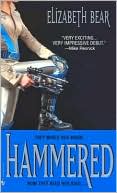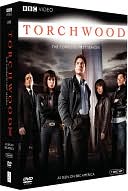Welcome to First Book Friday.
Elizabeth Bear (matociquala on LJ) has won the Campbell award for best new writer, the Hugo award (twice), the Locus award for best first novel, and the Sturgeon award. If my math is right, she’s put out about sixteen books since 2005, not counting several short fiction collections. Plus she’s been quoted on Criminal Minds.
Personally, I’m waiting for her to write a book about a Giant Ridiculous Weredog.
#
Jenny Casey is somebody who has lived in my head for a long time. Wounded, courageous, charismatic, with a take-no-prisoners sensibility and a voice that never hesitates to relate the truth she sees, be it breathtaking or horrible.
I suspect every writer has a few of these–the characters you can slip in to as easily as you slip into your favorite sweater. The ones whose rough patches and worn places just make them more comfortable. The ones whose voices wake you up at night with clever comments.
The ones who will not shut up and give you any peace at all.
I’ve wanted to be a writer since I was six years old, and I figured out stories came from someplace. I had stories in my head; it just took close to twenty-five years to learn the skills necessary to get them out and onto paper in a form other people are actually going to want to read.
Jenny first came to me in 1995 sometime, and among the first words she ever said to me were I never sleep if I can help it. I wrote a bad action novella about her, and a much better short story (“Gone to Flowers”) which has since seen print, and reams and reams of backstory vignettes.
She seemed to want to tell me about her life, and I was eager to hear it. But I wasn’t yet the writer I needed to be to pull it off. And I had no idea how to learn to be that writer. So the pile of notes and unpublishable fiction remained just that–a pile, even though I went back and worked on it periodically. I was writing, but I wasn’t progressing.
In 2001, though, I lost my job, and in the wake of 9/11 could not find another. So I wrote. It was a coping strategy. In that same time, I fell in with a group of writers at the Online Writing Workshop For Science Fiction and Fantasy (in a bit of sweet irony, I am now a Resident Editor there) and they taught me all the skills I needed–the most important of which was learning how to learn.
 I wrote five novels in two years. And the fourth of those was Hammered [Amazon | B&N | Mysterious Galaxy], which was based on some of those early notes, was good enough to impress Jenn Jackson, who agreed to become my agent. She sent me some rewrite notes, by means of which I tuned up the manuscript, and we started submitting it. I’d already finished Scardown by then–publishing is slow!–and while I was waiting, I went back to writing … I think it was Blood and Iron, at that point.
I wrote five novels in two years. And the fourth of those was Hammered [Amazon | B&N | Mysterious Galaxy], which was based on some of those early notes, was good enough to impress Jenn Jackson, who agreed to become my agent. She sent me some rewrite notes, by means of which I tuned up the manuscript, and we started submitting it. I’d already finished Scardown by then–publishing is slow!–and while I was waiting, I went back to writing … I think it was Blood and Iron, at that point.
Jenn called one night and told me she had good news: Anne Groell at Spectra had made an offer on Hammered and its two sequels. I almost dropped the phone.
And then I went and started work on Worldwired.
Anne has since told me that at the time, the Jenny books were Bantam Spectra’s fastest turnaround from acquisition to publication. (The record’s since been beaten–I think by Kelley Armstrong.) She bought the series in November of 2003, and they were all in print by December of 2005. They made my name as a writer, quite frankly, and I am eternally grateful to Anne and Jenn for that … and also, it must be said, to Jenny.
Jenny’s still got that voice: straightforward, brittle, brutally honest, a little jagged-feeling. The difference is, now other people can read it too. By the timeline in the books, she’s going to be born on September 30, 2012.
I think I need to throw her a party.











 I wrote five novels in two years. And the fourth of those was Hammered
I wrote five novels in two years. And the fourth of those was Hammered  So after loving four seasons of the new Doctor Who, I went ahead and got the first season of Torchwood for Christmas. (Thank you, Santa.) We’ve watched the first three episodes. I’m not sure how best to say this, but … well, if the show doesn’t improve, I guess I can always use the DVDs as backup air hockey pucks.
So after loving four seasons of the new Doctor Who, I went ahead and got the first season of Torchwood for Christmas. (Thank you, Santa.) We’ve watched the first three episodes. I’m not sure how best to say this, but … well, if the show doesn’t improve, I guess I can always use the DVDs as backup air hockey pucks.